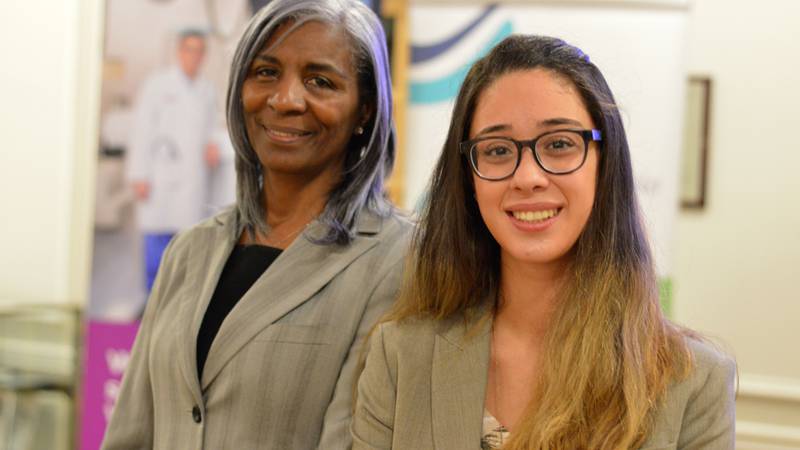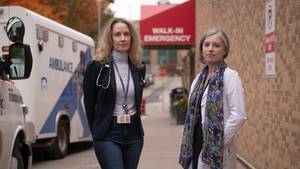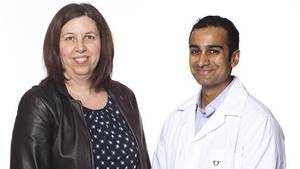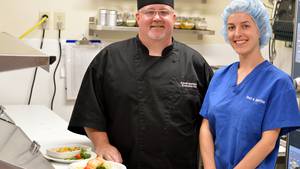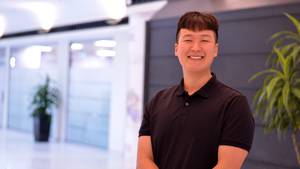Role models come in all shapes, sizes and backgrounds, so when our children dream of their future, it’s critical they have the opportunity to see themselves represented in that workforce.
For Zeina Atwi, a 19 year old, entering her third year of Respiratory Therapy studies at Dalhousie University, it wasn’t until she started attending school and working at the QEII Health Sciences Centre that she recognized how a diverse workforce can inspire the next generation.
Born in Lebanon, Zeina is one of eight recipients of the annual Diversity in Health Care Bursaries, funded by the QEII Foundation. The annual diversity bursary was launched in 2015 following the results of a workforce diversity survey completed in Halifax and West Hants that flagged under-representation of marginalized groups as a key issue.
After receiving the bursary in June 2018, Zeina says she was inspired to think more about diversity and its impact on healthcare delivery.
“With growing diversity in Halifax, having an equally diverse healthcare staff is beneficial to patients in order to provide quality patient care and develop healthy rapport with patients,” Zeina says. “Quality care is fundamental to health care, therefore having staff that can communicate with patients in their mother language or even understand their culture, is bound to positively impact the patient’s comfort and health outcomes.”
The bursary supports students studying in a health profession, which is a key component of building strong community role models within historically marginalized and under-represented groups, according to bursary co-founder Donalda MacIsaac, former co-chair of the Community Health Board in Sackville.
“There are social barriers you feel when you walk into an institution and are not represented,” Donalda says. “You feel you may be able to go there for treatment, but you really don’t feel part of it.”
Zeina agrees, adding the bursary and supporting community can help chart the course of a young student’s path. The $1,000 bursary is earmarked for African Nova Scotians, Indigenous peoples, new immigrants, people with disabilities and trans and gender diverse students. Bursary recipients enjoy a celebratory event meant to honour their achievements and must commit to seeking employment in the Nova Scotia Health Authority’s Central Zone.
“With growing diversity in Halifax, having an equally diverse healthcare staff is beneficial to patients in order to provide quality patient care and develop healthy rapport with patients.”
-Zeina Atwi
“Opportunities like this can give people the means or even the encouragement to think of careers that they may not normally get in to,” Zeina says. “I am thankful to have entered this program in order to help expand the diversity and provide good rapport with patients of the same cultural background as myself. Additionally, it helps expand my own sense of diversity by learning about new cultures and experiences that different patients have.”
Jonathan Dyer, manager for the Nova Scotia Health Authority Central Zone Public Engagement and Community Health Board Support, says the diversity bursary may be modest but can go a long way in supporting and encouraging would-be students to stick to it and pursue their career dreams.
“The diversity bursary takes into account the student’s current financial situation, the work they’re doing in their communities and their level of need; it’s truly holistic in that way,” Jonathan says.
With 40 bursaries distributed to date and a new annual funding partner in the QEII Foundation, who believes in the power of education, Donalda is energized to make a difference and says the NSHA’s decision to involve the Community Health Boards in the bursary program has been a key component to its success.
“We’re the eyes, ears and voice of the community, so my role was to go out in the community and report back,” Donalda says. “The bursary was, for me, the best accomplishment of my six years on the board.”

